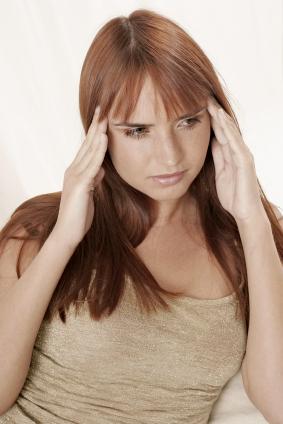
While numbness and pain can be symptoms of a wide variety of anxiety disorders, they can rear their heads more often in some disorders than in others. However, once you start taking steps to deal with your anxiety disorder, you can also be assured that the numbness and pain is likely to dissipate.
Making Sense of the Numbness and Pain
Feeling numbness and pain can be crippling. Discovering the reasons for your anxiety disorder is a big part of getting past the problem and leading a normal life. While it can often be difficult to pinpoint the reason for your numbness and pain, sometimes these symptoms and their causes can be quite easy to spot.
Chest Pains
Experiencing chest pains due to anxiety can feel similar to a heart attack. However, chest pain during an anxiety attack has nothing to do with the heart at all. The main cause of this type of pain is muscle tension in the chest. This tension happens because your body is reacting to fear and trying to figure out how to deal with it.
Headaches
Headaches associated with anxiety disorders can be debilitating. These headaches are classified as tension headaches. They typically radiate from the front of the head to the back near the neck and even into the shoulders. This pain is caused by your muscles tightening. As the anxiety becomes extreme, the headaches can worsen and become full blown migraines.
Numbness in Hands and Feet
You may also experience numbness in your hands and feet. This sensation is caused by extreme changes in your blood oxygen and blood carbon-dioxide levels. As these levels raise, the blood carbon-dioxide can build up in the extremities causing them to throb or go numb. You may also experience a tingling sensation. This feeling is typically caused when your nerve impulse becomes confused and overactive.
Stomach Pain
Another place where you may feel pain is your stomach. When blood begins to move from various muscle tissues to supply oxygen to the rest of your body, the first place it stops is the digestive system. When the blood starts to move again into other parts of the body, your stomach muscles may tense up and become knotted.
Types of Anxiety Disorders that Can Cause Numbness and Pain
While there are many types of anxiety disorders that cause numbness and pain, a few can be identified as being likely culprits. Defining these disorders makes the entire picture of the problem you are facing a little more clear.
Panic Disorder
Panic disorders involve a sudden onset of terror that is repetitive and often unexplainable. A panic attack may cause symptoms such as a racing heart beat and chest pains because of the extreme feeling of fear that is associated with the disorder. You can often feel your heart racing which can cause an involuntary tightening in your chest that can be quite painful.
Post Traumatic Stress Disorder
If you have post traumatic stress disorder (PTSD), you may find yourself reliving painful or terrifying events. As you relive these feelings, your body often becomes tense and reacts with unexplainable pains and tingling sensations. Your body goes into overdrive trying to make sense of what is happening and everything from your muscles to your nerve endings become erratic.
Generalized Anxiety
When you are plagued by a generalized anxiety disorder, you often feel an overwhelming sense of worry and fear that are unrealistic to the situation you are facing. Your body reacts to the stress by becoming tense. You may experience headaches, stomach pains or chest pains due to the tension on your muscles.
Help for Anxiety Disorders
There are a variety of things that you can do to help alleviate the numbness and pain associated with some anxiety disorders. These remedies are simple, and the more of them that you can incorporate into your daily life, the easier dealing with the symptoms is.
Exercise
Engaging in a regular exercise program can help alleviate both your anxiety and the symptoms you are experiencing. When you participate in physical activities, it raises the level of endorphins in your brain. An increased endorphin level can help you to move past the reasons for the anxiety which caused the symptoms in the first place.
Reduce Your Caffeine and Sugar Intake
Reducing the amount of caffeine that you drink or eat can have a significant effect on your anxiety. More specifically, when you reduce your intake of caffeine, you can also reduce the amount of headaches and stomach aches that you experience. Also, sugar is a carbohydrate and eating too much can cause your blood sugar to rise and fall abnormally. These changes can escalate the feelings of anxiety, numbness and pain as your body attempts to deal with the fluctuation.
Reduce Your Stress
Actively trying to reduce your stress can affect the amount of pain and numbness that you experience. Finding activities for stress management such as listening to music, working out or exploring a new hobby can help you to calm down, and you should feel the tension in your muscles subside.
Take Your Vitamins
There is a lot to be said about the importance of taking vitamins on a regular basis. More importantly, vitamin B benefits both red blood cell production and neurological health. Red blood cells carry oxygen throughout the body and may help to reduce pain and numbness. When the neurological system functions properly your electrical impulses are less likely to become erratic.
Taking Control of Your Anxiety Disorder
When you have an anxiety disorder causing numbness and pain, you may feel that there is nothing that can be done. However, once you understand the reasons for the pain and numbness in the various parts of your body, you can take control over the situation. Having ways to cope with and even stop the symptoms of your anxiety disorder means you've already won half the battle.







